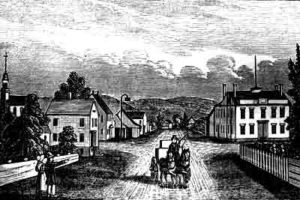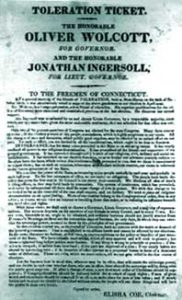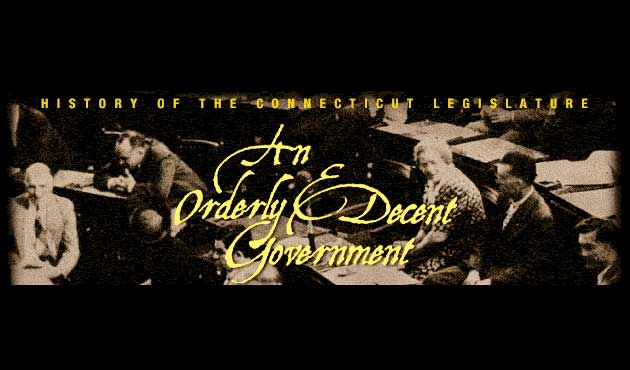The General Assembly Wages War
Loyalists were numerous in Connecticut, especially in Fairfield County, and posed a real threat to the war effort. The General Assembly responded with laws punishing those opposed to the Revolution with the seizure of their property, imprisonment, or even death.

The Cheshire Turnpike
The General Assembly’s Council of Safety and Governor John Trumbull met more than a thousand times in the “war office” in Lebanon to direct the war effort. Connecticut’s repeated contributions of provisions and foodstuffs to the Revolutionary cause earned it the nickname the “Provision State.”
The Cheshire Turnpike was chartered by the General Assembly in 1800. Good roads were vital to the economic competitiveness of Connecticut businesses, and the General Assembly took an active role in their creation by incorporating private companies to build turnpikes and levy tolls.
Debating a New Constitution

Toleration Party platform
Connecticut’s growing religious diversity became a source of increasing political tension as Episcopalians, Baptists, Methodists, Quakers and others established churches and opposed special privileges long granted to the Congregational Church by the General Assembly.
In 1817, opponents of the Federalists grouped together in the Toleration Party, won control of both houses of the General Assembly and the governor’s chair and vowed to write a new constitution for the state that embodied their reforms.
“The very principle of admitting everybody to the right of suffrage prostrates the wealth of individuals to the rapaciousness of a merciless gang who have nothing to lose and will delight in plundering their neighbors.”
– Federalist Noah Webster,
opposing the new constitution
This article is a panel reproduction from An Orderly and Decent Government, an exhibition on the history of representative government in Connecticut developed by Connecticut Humanities and put on display in the Capitol concourse of the Legislative Office Building, Hartford, Connecticut.
<< Previous – Home – Next >>









